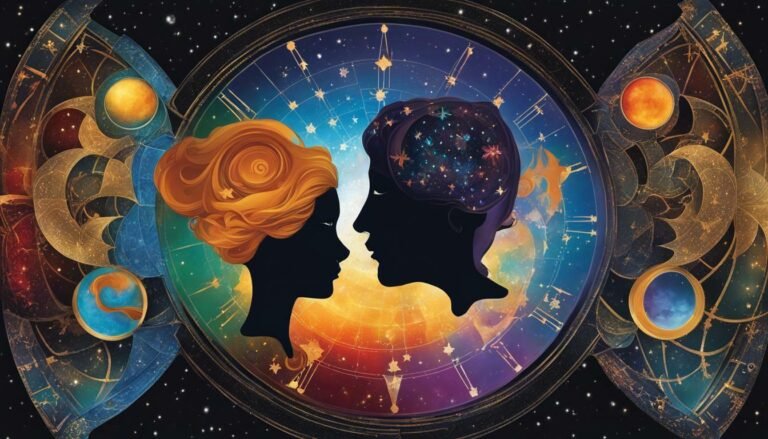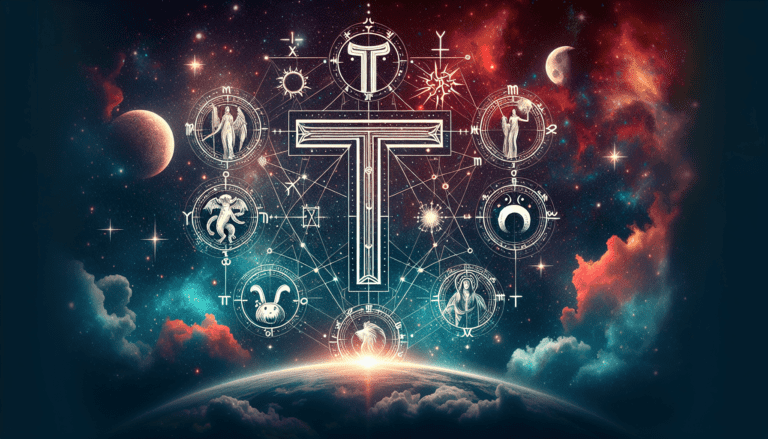Unpacking the Mystery: Why Do Men Hate Astrology?
Have you ever wondered why some men tend to dislike astrology? Despite its rising popularity, there is still a prevalent skepticism surrounding astrology, particularly amongst men. In this section, we will explore some of the reasons behind this skepticism, including gendered societal expectations, misconceptions about astrology, and psychological factors that may contribute to male skepticism towards astrology.
Key Takeaways:
- Men’s skepticism towards astrology may be influenced by societal expectations of masculinity.
- Misconceptions about astrology, including its scientific basis and gender biases, may contribute to male skepticism.
- Psychological factors such as cognitive biases and personality traits may also play a role in shaping men’s beliefs about astrology.
Debunking Astrology Misconceptions for Men
Despite its popularity among some individuals, astrology is often met with skepticism and misconceptions, particularly among men. However, it is important to recognize that many of these beliefs are unfounded and based on gender biases that have been perpetuated throughout history.
One common misconception is that astrology is solely based on superstitions and lacks scientific evidence. However, this is not entirely true. While astrology may not be a hard science, it is based on mathematics, astronomy, and celestial movements. Furthermore, many astrologers incorporate psychological and spiritual elements into their practice, emphasizing introspection, self-awareness, and personal growth.
Another misconception is that astrology is gender-biased and reinforces traditional gender roles. This belief stems from the historical association of astrology with femininity and its use in traditional gender roles, such as predicting the characteristics of one’s future spouse. However, modern astrology is much more inclusive and has evolved to incorporate diverse perspectives and beliefs. Furthermore, gender is a complex and multifaceted identity that cannot be reduced to simplistic astrological constructs.
It is also important to recognize that astrology is not a form of fortune-telling or clairvoyance. Rather, it is a tool for self-reflection and introspection, allowing individuals to gain insight into their own personalities, strengths, and weaknesses. Astrology can also provide guidance and support for individuals during challenging times, helping them to understand and cope with difficult experiences.
In conclusion, while astrology may not be everyone’s cup of tea, it is important to debunk misconceptions and biases surrounding this practice. By recognizing its potential benefits and embracing diverse perspectives, both men and women can gain a deeper understanding of themselves and the world around them.
The Psychology Behind Male Skepticism Towards Astrology
Despite the growing popularity of astrology, many men continue to hold a skeptical view of it. To understand why, we must examine the gender perspectives on astrology and the psychology of male skepticism towards it.
Research suggests that men tend to view astrology as a form of superstition or pseudoscience, likely due to societal expectations of masculinity. Men are often taught to value logic and rationality over intuition and emotion, which can lead to beliefs that dismiss the spiritual and metaphysical aspects of astrology.
Furthermore, cognitive biases may play a role in male skepticism towards astrology. Confirmation bias, where people tend to seek out information that confirms their existing beliefs, may lead men to overlook the potential benefits of astrology and instead focus on its perceived flaws.
However, it’s important to note that not all men view astrology in the same way. Personal experiences and individual beliefs also shape one’s perspective on astrology, regardless of gender. Some men may find value in astrology’s ability to offer insight and guidance on personal matters, or may view it as a tool for self-reflection and growth.
Overall, the psychology behind male skepticism towards astrology is complex and multi-faceted. By acknowledging the gender perspectives on astrology and examining the cognitive biases that may influence male attitudes, we can gain a better understanding of why some men may dislike astrology. At the same time, we must also recognize the potential benefits that astrology can offer and remain open to diverse perspectives.
Astrology’s Appeal to Men: Breaking Stereotypes
While astrology is often associated with femininity, it is important to recognize that astrology’s appeal extends beyond gender. Many men find solace and guidance in astrology, breaking stereotypes surrounding its perception.
Astrology offers a unique opportunity for introspection and self-reflection. It allows individuals to gain insight into their personality traits, relationships, and life experiences. For men who may be less comfortable with discussing their emotions, astrology can provide a safe space to explore their feelings.
Furthermore, astrology can offer a sense of direction and purpose. It can provide guidance in making important life decisions and navigating challenging situations. This can be particularly beneficial for men who may feel pressure to uphold societal expectations of masculinity, often associated with being assertive and decisive.
By embracing astrology, men can challenge traditional notions of gender and masculinity. It allows for a more holistic understanding of oneself and the world around them, without conforming to restrictive gender roles. Ultimately, astrology’s appeal to men speaks to the human desire for connection, understanding, and meaning.
A Nuanced Understanding: Why Some Men Dislike Astrology
It’s no secret that astrology is often associated with women and femininity. This may be one reason why some men are skeptical or outright hostile towards it. However, the reasons behind male skepticism towards astrology are multifaceted and complex. In this article, we’ve explored some of the societal and psychological factors that may play a role in shaping men’s beliefs about astrology.
From rigid societal expectations of masculinity to cognitive biases, these factors can create misconceptions and biases that may influence men’s attitudes towards astrology. While some of these misconceptions may have some basis in reality, it’s important to acknowledge the nuance of the situation and not simply dismiss astrology outright.
That being said, there are also men who find value in astrology and its insights. It can provide a sense of guidance, introspection, and self-reflection that is beneficial to individuals of any gender. By recognizing the appeal of astrology to people of all genders, we can break down stereotypes and broaden our understanding of its potential benefits.
In conclusion, the reasons behind male skepticism towards astrology are varied and complex. Rather than simply dismissing astrology as nonsense, it’s important to acknowledge and address the diverse perspectives and misconceptions surrounding it. By doing so, we can create a more inclusive and nuanced understanding of astrology that benefits everyone.
FAQ
Q: Why do men hate astrology?
A: Men’s dislike towards astrology can stem from various factors such as societal expectations of masculinity and misconceptions about the validity of astrological beliefs.
Q: What are some common misconceptions about astrology for men?
A: Some misconceptions about astrology for men include the belief that it lacks scientific basis and the presence of gender bias in astrological interpretations.
Q: What psychological factors influence male skepticism towards astrology?
A: Male skepticism towards astrology can be influenced by personality traits, cognitive biases, and societal norms that shape their beliefs and attitudes.
Q: Does astrology appeal to men?
A: Yes, astrology can appeal to men as it provides a sense of guidance, introspection, and self-reflection, challenging stereotypes associated with its perception.
Q: What is the conclusion about men’s skepticism towards astrology?
A: In conclusion, men’s skepticism towards astrology is influenced by various factors, including societal expectations, misconceptions, and psychological factors. It is important to have a nuanced understanding and debunk misconceptions surrounding astrology to foster a more inclusive perspective.





